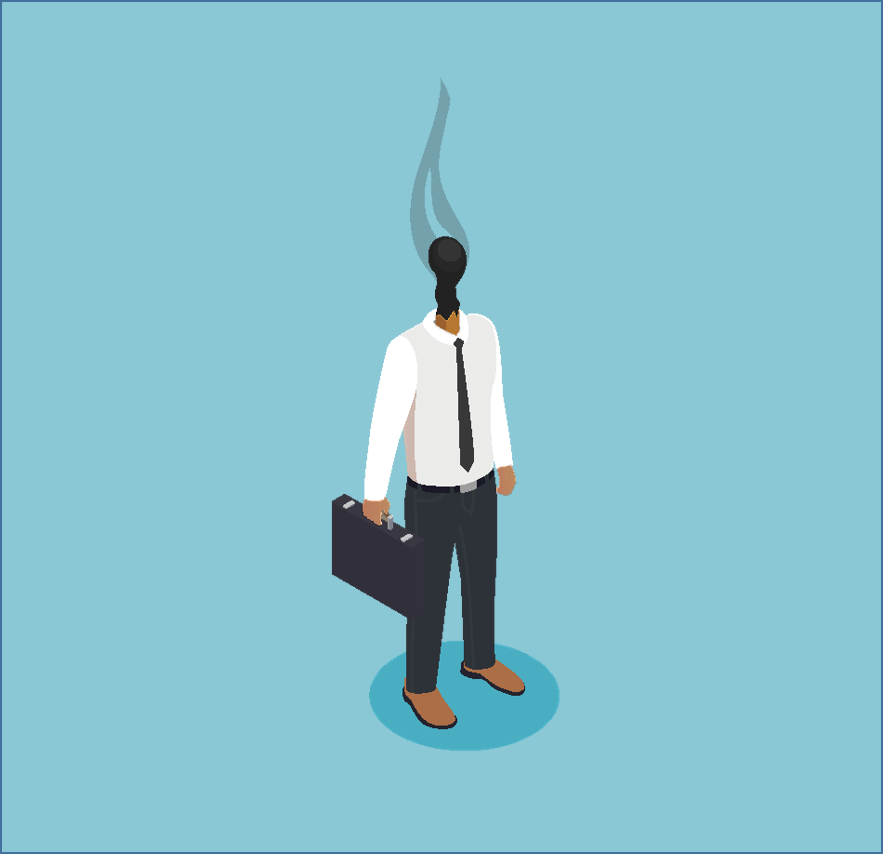
My new book, This Isn’t Working! Evolving the Way We Work to Decrease Stress, Anxiety, and Depression, is now available for pre-order on Amazon here. I have been hearing from a lot of people who are feeling completely wiped out from 2022 as they head into 2023. I thought it might be helpful to share this section from my book:
Many successful professionals and business owners struggle to identify or admit to burnout. I think the pandemic has forced people to talk about it more, but it’s likely someone who knows you well will tell you you’re burned out long before you identify that for yourself.
In men, this can show up as annoyance or anger. They feel like they have a short fuse. They may admit to feeling tired more often. They may feel like they wake up tired, without having slept well. They may find their thoughts going on spin cycle or may feel like their life is in black and white instead of color.
Women, especially the high achievers I work with, have often been on the hamster wheel for so long they’ve forgotten what it’s like to not be constantly in motion. They may feel scattered, less productive, weepy, or diffused. They may feel untethered. But it’s unlikely they’ll say they’re burned out.
Why? Because burnout is something other people experience, not them. They could potentially identify it in a friend or colleague, but probably not in themselves.
Want more straight talk about what isn’t working and what might work better? Pick up a copy of my new book. Amazon link is in the comments below.
I have a dear friend who runs her own coaching and training business. A former senior executive and single mom, she has been juggling her career and everyone else’s needs for as long as she can remember.
In addition, she grew up in a family of workaholics, so the overachiever state of life and mind is very comfortable for her. We had a conversation about the future vision for her business and her life, and it was immediately clear to me she was, in my professional assessment, “toast.” She was cooked. She needed a break, and probably a long one.
An extrovert stuck at home for more than a year during the pandemic, she’d pivoted her business and wasn’t sure the new model was actually a fit for who she was, or how she wanted to work. Had she come to the end of this season with her business? Should she try to recreate what worked well—and what she enjoyed—in the past? Should she consider different strategies or business models? She had no idea. No new ideas were coming. Everything felt like a ton of effort and had no spark.
Hello, burnout.
During our conversation, we had a bit of a tussle over the “B” word, but after a few weeks had passed, she owned it. I suggested she clear her calendar for a month, pack up her car, and go on a road trip to recharge her battery. She loved the idea, but as a business owner, she was worried her business would not survive the adventure. I assured her it would, and her ego would survive being unplugged from being needed as well.
As I write this, the pictures and posts of her adventure are colorful and joyful. I can’t even imagine what she will cook up for her business and life when she gets home. Look out, world!
So many entrepreneurs jump on my calendar when they hit the wall in their business. Often, it’s at the five-plus year mark. They’ve had success but are tired of being the CEO and the janitor or need to be able to separate from the business for their sanity or their family—or both. One of the first questions I ask is, “When was the last time you took a real vacation?” Usually I am met with silence or blank stares.
The ego loves thinking you’re so important that you can’t get away, but it is rarely true.
And if it is true, you can limit the work you do to an hour or two and still get some rest and relaxation while you’re away. You can set strict boundaries with yourself and others.
A woman from Malta who owned two fish stores told me she wanted to get a job but didn’t know where to start. I asked questions about her life and her business and learned she hadn’t taken a vacation in over two years. I told her to start there, and if she still wanted to look for work when she came back, I would be happy to help her. I never heard from her again.
And yes, you can still experience burnout after staying at home during the pandemic and “not doing much” or caretaking for someone else. In my experience, caretaking is more stressful and exhausting than working any job. Caring for an elder relative for a short time broke me.
I am not joking. I am not good at that kind of nurturing, even though I love doing the work I do, which has a nurturing component to it. Caretaking is hard!
Workers in healing professions have to actively manage against burnout. The same holds true for professionals working for nonprofit organizations. Fighting for a cause you care about is hugely rewarding, but make sure you unplug and recharge your own battery on a regular basis, or you won’t be able to do your good work.
PS – Even the Energizer Bunny himself, Tony Robbins, sponsored a post on Facebook about how many of us were feeling battered as a result of 2022. If you’re struggling, you are definitely not alone.

